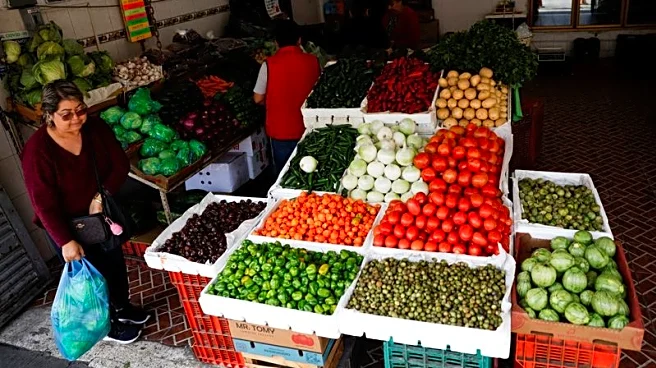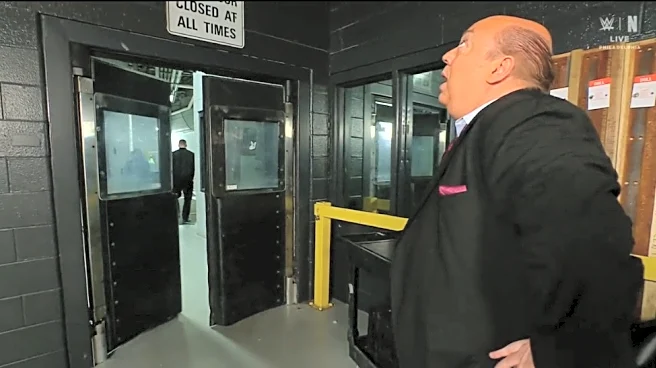What is the story about?
What's Happening?
The Trump administration has ended a tariff exemption for small-value packages, effective as of 12:01 a.m. Friday. This change means that packages shipped into the U.S. valued under $800 are now subject to tariffs. The decision, announced earlier this year by President Trump, aims to rebalance trade and curb the importation of illegal goods, including fentanyl. Senior White House officials have emphasized the importance of this move, projecting it will generate up to $10 billion in tariff revenues and restrict the flow of narcotics and other prohibited items. The administration has introduced a transitional option allowing shippers to pay a flat fee between $80 to $200 per item, depending on the country of origin's tariff rate, to ensure a smooth transition. Major shipping companies like UPS, FedEx, and DHL have confirmed their readiness to continue operations under the new regulations.
Why It's Important?
The end of the tariff exemption for small-value packages marks a significant shift in U.S. trade policy, with potential implications for international commerce and domestic safety. By imposing tariffs on these packages, the administration aims to address trade imbalances and enhance border security. This move could lead to increased costs for consumers and businesses relying on imports of small-value goods, potentially affecting pricing and availability. Additionally, the policy is designed to combat smuggling and illegal trade, particularly concerning narcotics and counterfeit goods. The anticipated increase in tariff revenues could bolster government finances, while the focus on safety and intellectual property protection aligns with broader enforcement goals.
What's Next?
As the new tariff policy takes effect, stakeholders including shipping companies, consumers, and international trade partners will need to adapt to the changes. The administration has provided a six-month transitional period with flat fees to ease the adjustment process. U.S. Customs and Border Patrol officers are prepared to manage the increased workload associated with the policy change. The administration may continue to monitor the impact on trade flows and smuggling activities, potentially adjusting enforcement strategies as needed. International postal services are urged to improve their policing of packages destined for the U.S., as express carriers are seen as more effective in compliance.
Beyond the Headlines
The policy shift highlights broader issues in international trade and security, including the challenges of balancing economic interests with safety concerns. The focus on small-value packages as potential smuggling devices underscores the complexity of modern trade logistics and the need for robust enforcement mechanisms. The move may also influence global trade practices, prompting other countries to reconsider their own tariff policies and enforcement strategies. The emphasis on intellectual property protection and health and safety standards reflects ongoing efforts to safeguard U.S. consumers and businesses from harmful imports.
















